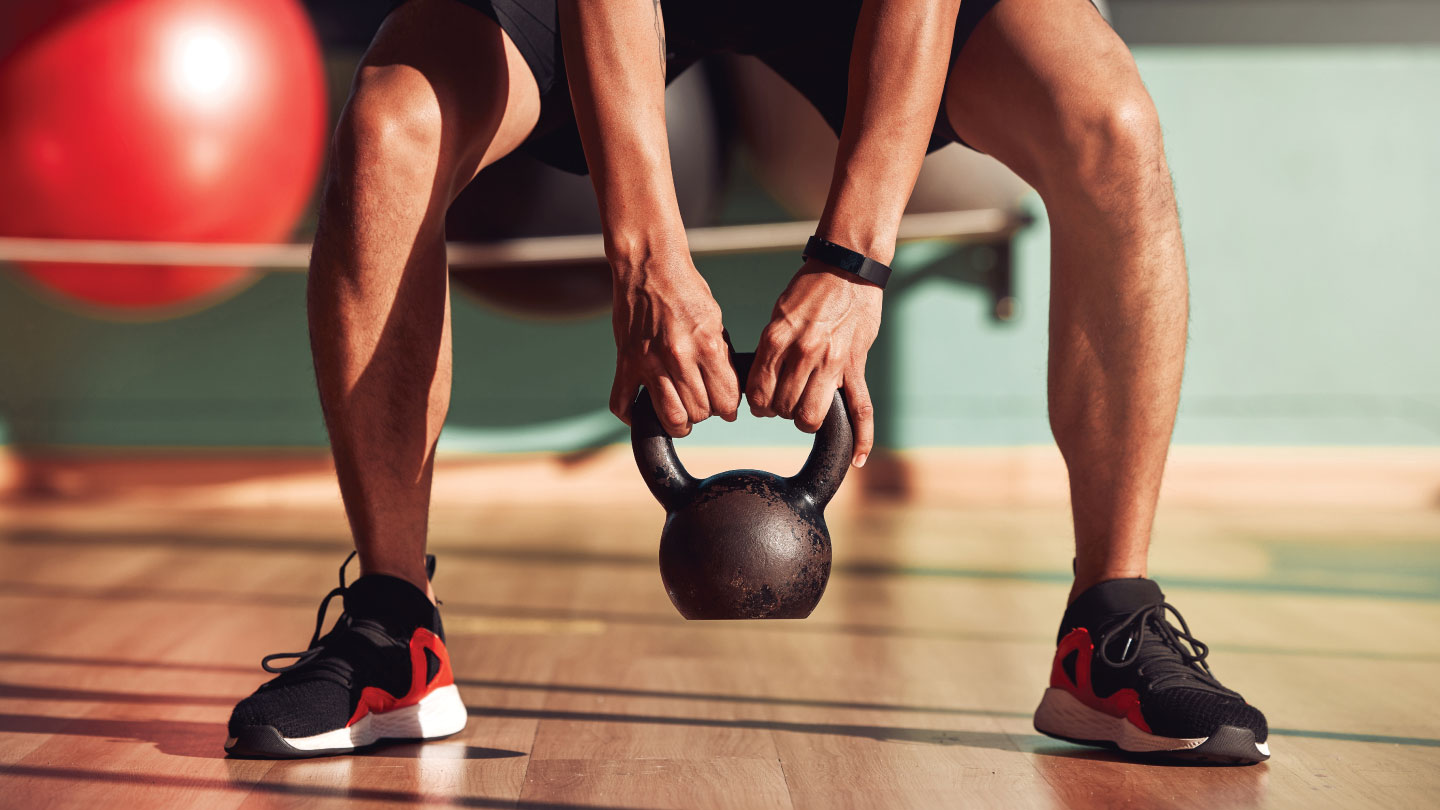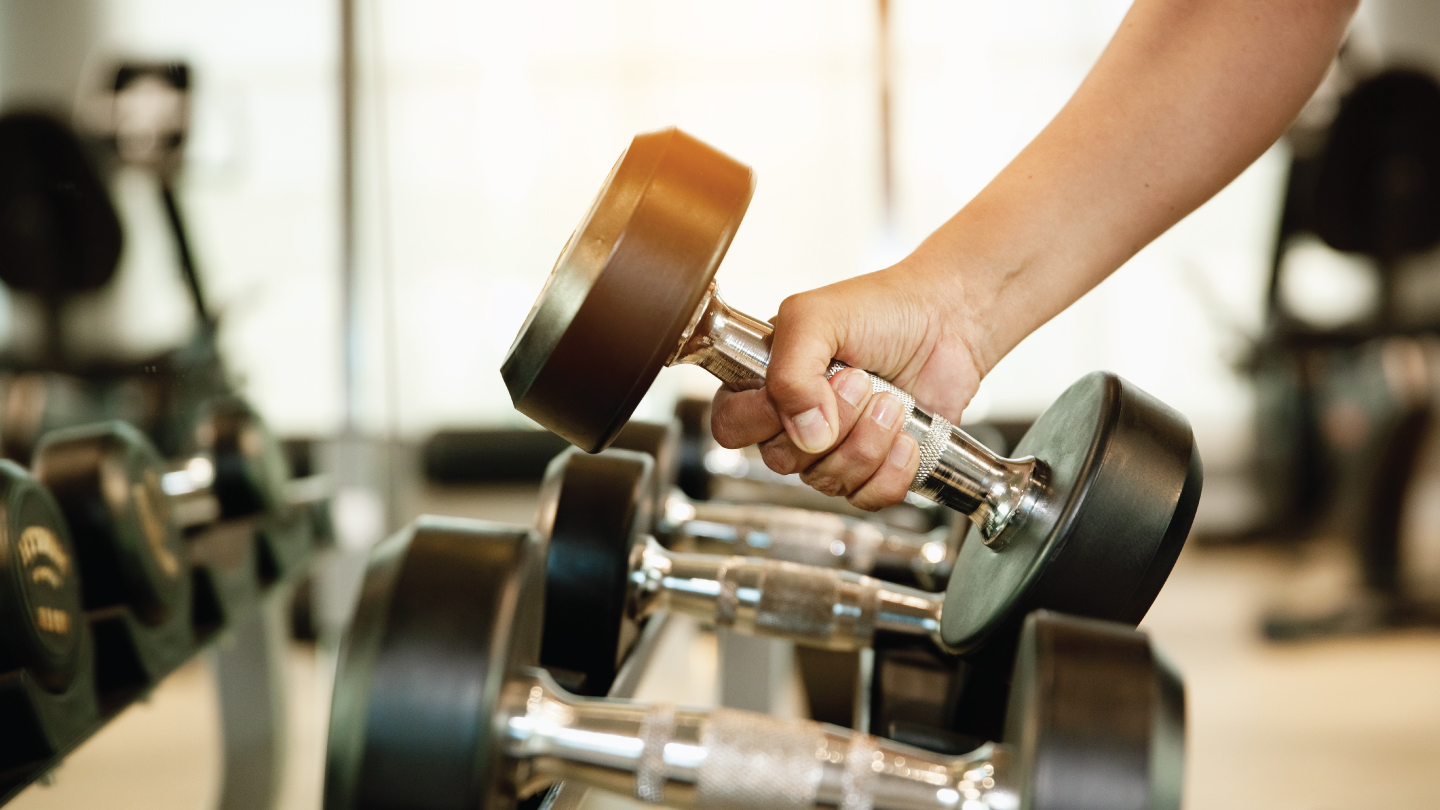Movement
8 Ways To Boost Your Post-Workout Routine
Reduce the risk of injury and improve your results at the gym with the right approach to t post-workout recovery. Here are 8 tips to elevate your post-workout recovery.

Have you ever found yourself putting in hours of hard work at the gym only to feel discouraged by the lack of visible results? It's easy to feel frustrated when you don't see the physical changes you were hoping for. But have you thought about what you’re doing outside of the gym to help achieve your fitness goals? Proper recovery is just as important as the workout itself and can make all the difference in achieving your fitness goals. So, let's explore some tips and tricks for optimising your recovery routine and finally seeing the results you've been working towards.
Unlock insider access to the best movement plans for free! Sign up today.
Related story: Yoga Is For Everyone: Take Inspiration From These Five Body-Positive Influencers
Why Is Recovery Important?
Recovery is a crucial component of any workout routine as it allows your body to repair and rebuild the muscles that have been exerted during exercise. Micro-tears are created in your muscles when working out, which are a normal part of the muscle-building process. But they need time to heal properly and adequate rest can strengthen your muscles in the long term.
Recovery time is when your body repairs the micro-tears and strengthens the muscles, making them bigger and stronger. During this time, your body also replenishes energy stores and removes waste products from the muscles, which helps to reduce soreness and fatigue.
Without proper recovery time, your body won't be able to repair and rebuild muscles, which can lead to decreased performance and even injury. Overtraining, which occurs when you don't allow your body enough time to recover between workouts, can lead to various negative side effects, including decreased immune function, fatigue, and chronic pain.
Related story: Easy Guide To Injury-Free Yoga Practice
Failing to properly recover after exercise can have several negative consequences for your body and overall fitness progress. Here are some of the potential consequences:
- Slow muscle growth: Recovery is an essential part of building muscle. When you work out, you create tiny tears in your muscle fibres. Proper recovery allows your body to repair these tears, which results in stronger, larger muscles. Without sufficient recovery time, your muscles won't have a chance to grow, and you may experience a plateau in your fitness progress.
- Injuries: Overtraining or not allowing enough rest days can lead to muscle strains, sprains, and other injuries. This can occur when you don't give your muscles enough time to recover and repair themselves after a workout. This can be a major setback to your fitness goals, and can even sideline you from exercising entirely for a period of time.
- Loss of mobility: Lack of recovery can cause stiffness and soreness in your muscles, which can lead to a loss of mobility over time. This can negatively impact your ability to perform exercises correctly and limit your overall fitness progress.
- No progress towards fitness goals: Proper recovery is crucial for making progress towards your fitness goals. Without it, your body may become fatigued, and you may not be able to perform at your best during workouts. This can lead to frustration and a lack of motivation to continue with your fitness routine.
- Lack of blood circulation: During exercise, your body pumps more blood to your muscles to provide them with the necessary nutrients and oxygen. Recovery time allows for increased blood flow to help repair damaged tissues and remove metabolic waste products. Without proper recovery, the circulatory system may not function properly, which can cause a lack of blood circulation and slow down your body's recovery process.
Related Story: 4 Yoga Poses Under Four Minutes For Weight Loss
Types of Recovery
Exercise-induced muscle damage (EIMD) is a common outcome of physical activity that leads to a decrease in muscle function, performance, and muscle soreness. Recovery is an essential aspect of training that helps athletes to regain their full potential and performance. There are two types of recovery after exercise: short-term and long-term recovery.
Short-term recovery refers to the process that occurs immediately after exercise and lasts for several hours. This type of recovery involves activities such as cooling down, stretching, rehydration, and nutrition. Cooling down helps to lower the body's core temperature, reduce the risk of injury, and aid in the removal of metabolic waste products. Stretching helps to maintain flexibility, prevent muscle stiffness, and reduce muscle soreness.
Rehydration is essential after exercise as it helps to replace fluids lost through sweating. Proper hydration ensures that the body can maintain its normal functions, including temperature regulation and energy production. Nutrition is also a critical aspect of short-term recovery as it helps to replenish glycogen stores, repair muscle damage, and promote protein synthesis. Consuming carbohydrates and protein after exercise can help to promote recovery.
Related Story: How To Restart Your Fitness Journey After A Break
Long-term recovery refers to the process that occurs over several days or weeks after exercise. This type of recovery involves activities such as rest, sleep, and active recovery. Rest is essential for long-term recovery as it allows the body to repair and regenerate damaged tissues. Sleep is also crucial as it helps to promote hormone secretion, which is necessary for muscle growth and repair.
Active recovery involves low-intensity exercise that promotes blood flow and reduces muscle soreness. Examples of active recovery include light jogging, swimming, or cycling. These activities help to promote the removal of metabolic waste products and enhance muscle recovery. Additionally, massage and foam rolling can also aid in long-term recovery by improving blood flow and reducing muscle tension.
Both short-term and long-term recovery is essential for individuals to optimise their performance and prevent injury. By incorporating strategies such as cooling down, stretching, rehydration, nutrition, rest, sleep, and active recovery, individuals can promote muscle recovery, reduce soreness, and enhance their overall performance.
Related Story: 6 Moves to Ease Back Pain
Importance of Stretching: Pre And Post-Workout
Stretching is an essential part of any workout routine, and it is recommended to do both pre and post-workout stretches. Here are some reasons why stretching is important before and after exercise:
Pre-Workout Stretching
- Increases flexibility: Stretching before a workout can help improve flexibility, range of motion, and joint mobility. This can help you move more freely during your workout and reduce the risk of injury.
- Reduces risk of injury: When you stretch before exercising, you are preparing your muscles for the physical demands of your workout. This can help prevent muscle strains, sprains, and other injuries.
- Improves performance: Proper stretching can improve your overall athletic performance by increasing blood flow to your muscles, which can improve muscle function, strength, and endurance.
Post-Workout Stretching
- Reduces muscle soreness: Stretching after a workout can help reduce muscle soreness and stiffness, which can be especially helpful after an intense workout.
- Promotes muscle recovery: Stretching after a workout can also help promote muscle recovery by increasing blood flow to your muscles, which can help repair damaged tissues and remove metabolic waste products.
- Improves flexibility: Stretching after a workout can also help improve flexibility and range of motion, which can be helpful for maintaining joint health and preventing future injuries.
Hence, incorporating stretching into your workout routine can help you maximise your fitness gains and minimise the risk of injury.
Related Story: Easy Guide To Release Stiffness Using A Foam Roller
Ways To Maximise Recovery After Workout
Eat Protein Pre and Post Workout
Eating protein before and after exercise is essential for muscle recovery and growth. Protein provides the building blocks required for muscle tissue restoration and growth. Research has shown that consuming protein before and after exercise can help maximise muscle protein synthesis, which is essential for building and repairing muscle tissue.
A 2017 study published in the Journal of the International Society of Sports Nutrition found that consuming protein before and after exercise can help increase muscle protein synthesis and improve muscle recovery. The study found that consuming protein immediately after exercise can increase muscle protein synthesis by up to 50 per cent while consuming protein before exercise can increase muscle protein synthesis by up to 22 per cent.
In addition, research has shown that consuming protein before exercise can help improve muscle function and reduce muscle damage. A study published in the Journal of Science and Medicine in Sport found that consuming protein before exercise can help reduce muscle damage and inflammation, leading to faster recovery and improved muscle function.
Try an Ice Bath
Ice baths have become a popular recovery technique among athletes and fitness enthusiasts. Ice baths involve submerging the body in cold water for a short period of time, usually around 10-15 minutes. The idea behind ice baths is that cold water can help reduce inflammation and muscle soreness, as well as improve circulation and promote muscle recovery.
Research has shown that ice baths can be effective in reducing muscle soreness and inflammation. A 2018 study published in the Journal of Science and Medicine in Sport found that cold water immersion can help reduce muscle soreness and inflammation, leading to faster recovery and improved muscle function.
Another recovery technique that is gaining popularity is contrast water therapy. Contrast water therapy involves alternating between cold and hot water to help promote circulation and reduce inflammation. Research has shown that contrast water therapy can be effective in reducing muscle soreness and improving muscle recovery.
Skip Alcohol
While it may be tempting to celebrate a good workout with a few drinks, alcohol can actually hinder your body's ability to recover properly. Alcohol is a diuretic, which means it can cause dehydration and impair your body's ability to absorb important nutrients. Additionally, alcohol can interfere with protein synthesis, which is essential for muscle recovery and growth.
According to a study published in the Journal of the International Society of Sports Nutrition in 2010, alcohol consumption after exercise can delay recovery of muscle function and increase muscle damage. Another study published in the Journal of Athletic Training in 2014 found that consuming alcohol after exercise can impair the body's immune response and increase the risk of infection.
Hydration
Staying hydrated is essential for post-workout recovery, as water helps transport nutrients to your muscles and removes waste products. Dehydration can lead to muscle cramps, fatigue, and impaired physical performance, so it's important to drink plenty of water before, during, and after exercise.
According to a study published in the Journal of Athletic Training in 2012, dehydration can impair muscle recovery and delay the return of muscle strength. Another 2014 study published in the European Journal of Applied Physiology found that staying hydrated can help reduce muscle soreness and inflammation after exercise.
Use a Foam Roller
Foam rolling is a form of self-massage that uses a cylindrical foam roller to apply pressure to different parts of the body. This technique is thought to reduce muscle soreness and improve muscle function, which can aid in recovery after exercise.
Research conducted in 2015 by a team of Brazilian scientists found that foam rolling significantly reduced muscle soreness and improved the range of motion in a group of healthy young adults. The study participants performed exercises that induced muscle soreness and then received either foam rolling treatment or no treatment. Those who received foam rolling treatment had significantly less muscle soreness and improved range of motion compared to those who did not receive treatment.
Another 2018 study published in the Journal of Athletic Training found that foam rolling can improve performance in endurance athletes. The study participants were trained runners who used a foam roller on their lower body for 20 minutes before and after running. The researchers found that the runners had significantly better running economy and improved endurance performance after foam rolling compared to when they did not use the foam roller.
Drink Tart Cherry Juice
Tart cherry juice is a natural anti-inflammatory and antioxidant-rich drink that has been shown to have several health benefits, including aiding in post-workout recovery. The juice is high in compounds called anthocyanins, which have been shown to reduce muscle soreness and improve muscle function.
Related story: Yoga Poses To Help You De-Stress
A study conducted by researchers at Northumbria University in the UK in 2018 found that drinking tart cherry juice before and after exercise can reduce muscle soreness and improve recovery. The study participants were a group of well-trained endurance athletes who drank tart cherry juice or a placebo for five days leading up to and following a marathon race. The researchers found that the athletes who drank tart cherry juice had significantly less muscle soreness and faster recovery times compared to those who drank the placebo.
Another 2019 study published in the Scandinavian Journal of Medicine and Science in Sports found that tart cherry juice can improve muscle function and reduce oxidative stress in healthy adults. The study participants drank tart cherry juice or a placebo for eight days and then performed exercises that induced muscle damage. The researchers found that those who drank tart cherry juice had improved muscle function and less oxidative stress compared to those who drank the placebo.
Unlock insider access to the best movement plans for free! Sign up today.
Recovery is a crucial part of a healthy lifestyle that should not be ignored. Ignoring recovery can lead to injury, burnout, and stalled progress. Incorporate rest days, sleep, proper nutrition, stretching, and foam rolling into your recovery routine to help your body repair and adapt to the stress of exercise. Remember, fitness is a journey, and proper recovery will help you reach your goals safely and effectively.
When you’re looking to take your exercise regime to the next level, head to UR.Life Studio. We are the premier destination for fitness in Hyderabad, offering customised fitness plans and more for your needs. Our team of celebrity trainers, certified nutritionists and experienced physiotherapists are here to help you unlock your full potential.
The URLife Studio is a luxe wellness oasis, combining sleek modern design, lavish amenities, state-of-the-art equipment and personalised wellness programs.
- Yoga
- Kickboxing
- Pool and Bollywood aerobics
- Pregnancy care workshops
- Customised physiotherapy
- Spa
- Garden Cafe
- Women’s wellness program
EXPLORE MORE
Think your office chair is your comfort zone? Your joints might just disagree.
These kettlebell lower body exercises target different muscle groups in both men and women, improving balance, increasing overall performance, and helping sculpt lean legs.
Thinking of running your first marathon? Running coach Suresh Srinivasan breaks down everything you need to know—from building a solid base to race-day mindset.
From diet to movement, here’s how to make your bones fracture-resistant.








.jpg)

